#Lawrence Watt Evans
Text

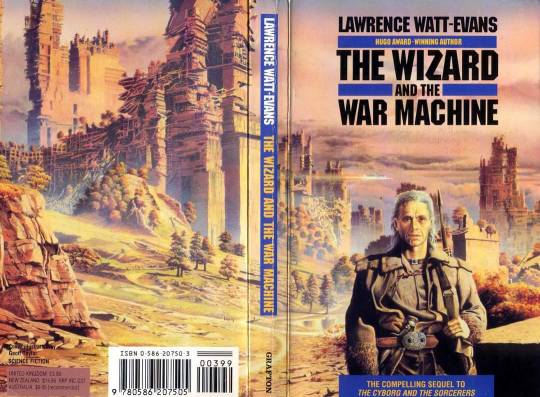
With titles like this.
1 note
·
View note
Text
On the one hand, it's true that the way Dungeons & Dragons defines terms like "sorcerer" and "warlock" and "wizard" is really only relevant to Dungeons & Dragons and its associated media – indeed, how these terms are used isn't even consistent between editions of D&D! – and trying to apply them in other contexts is rarely productive.
On the other hand, it's not true that these sorts of fine-grained taxonomies of types of magic are strictly a D&D-ism and never occur elsewhere. That folks make this argument is typically a symptom of being unfamiliar with Dungeons & Dragons' source material. D&D's main inspirations are American literary sword and sorcery fantasy spanning roughly the 1930s through the early 1980s, and fine-grained taxonomies of magic users absolutely do appear in these sources; they just aren't anything like as consistent as the folks who try to cram everything into the sorcerer/warlock/wizard model would prefer.
For example, in Lyndon Hardy's "Five Magics" series, the five types of magical practitioners are:
Alchemists: Drawing forth the hidden virtues of common materials to craft magic potions; limited by the fact that the outcomes of their formulas are partially random.
Magicians: Crafting enchanted items through complex manufacturing procedures; limited by the fact that each step in the procedure must be performed perfectly with no margin for error.
Sorcerers: Speaking verbal formulas to basically hack other people's minds, permitting illusion-craft and mind control; limited by the fact that the exercise of their art eventually kills them.
Thaumaturges: Shaping matter by manipulating miniature models; limited by the need to draw on outside sources like fires or flywheels to make up the resulting kinetic energy deficit.
Wizards: Summoning and binding demons from other dimensions; limited by the fact that the binding ritual exposes them to mental domination by the summoned demon if their will is weak.
"Warlock", meanwhile, isn't a type of practitioner, but does appear as pejorative term for a wizard who's lost a contest of wills with one of their own summoned demons.
Conversely, Lawrence Watt-Evans' "Legends of Ethshar" series includes such types of magic-users as:
Sorcerers: Channelling power through metal talismans to produce fixed effects; in the time of the novels, talisman-craft is largely a lost art, and most sorcerers use found or inherited talismans.
Theurges: Summoning gods; the setting's gods have no interest in human worship, but are bound not to interfere in the mortal world unless summoned, and are thus amenable to cutting deals.
Warlocks: Wielding X-Men style psychokinesis by virtue of their attunement to the telepathic whispers emanating from the wreckage of a crashed alien starship. (They're the edgy ones!)
Witches: Producing improvisational effects mostly related to healing, telepathy, precognition, and minor telekinesis by drawing on their own internal energy.
Wizards: Drawing down the infinite power of Chaos and shaping it with complex rituals. Basically D&D wizards, albeit with a much greater propensity for exploding.
You'll note that both taxonomies include something called a "sorcerer", something called a "warlock", and something called a "wizard", but what those terms mean in their respective contexts agrees neither with the Dungeons & Dragons definitions, nor with each other.
(Admittedly, these examples are from the 1980s, and are thus not free of D&D's influence; I picked them because they both happened to use all three of the terms in question in ways that are at odds with how D&D uses them. You can find similar taxonomies of magic use in earlier works, but I would have had to use many more examples to offer multiple competing definitions of each of "sorcerer", "warlock" and "wizard", and this post is already long enough!)
So basically what I'm saying is giving people a hard time about using these terms "wrong" – particularly if your objection is that they're not using them in a way that's congruent with however D&D's flavour of the week uses them – makes you a dick, but simply having this sort of taxonomy has a rich history within the genre. Wizard phylogeny is a time-honoured tradition!
#gaming#tabletop roleplaying#tabletop rpgs#dungeons & dragons#d&d#worldbuilding#taxonomy#phylogeny#media#literature#history#literary history#death mention
3K notes
·
View notes
Text
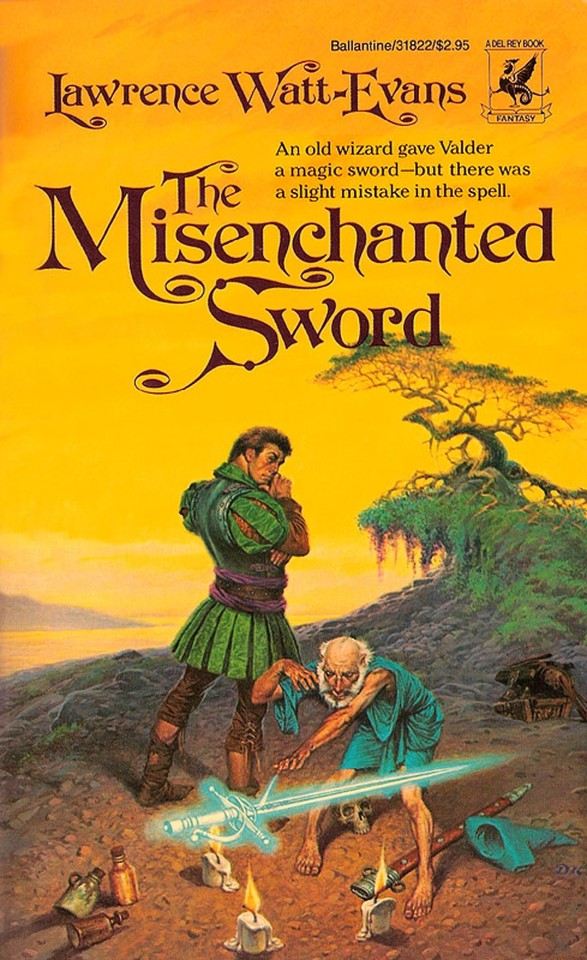
The Misenchanted Sword (Legends of Ethshar, volume 1) by Lawrence Watt-Evans
A common-place soldier's life is complicated by a magic sword's deadly flaw.
13 notes
·
View notes
Text
"With a Single Spell" -Lawrence Watt-Evans
"Jednym Zaklęciem" -Polska wersja poniżej :]
If I had to describe that incredible novel in three words, I would say: typical, classic fantasy. There was a king, princesses, wizards, dragons and witches. And, of course, seeking for adventure. Everything what comes us to mind when we say "fantasy book". I enjoyed reading a lot.
Plot was unexpected and simultaneously not. Supposedly classic and typical and very different and original in the same time. I never ever saw, for example, application of tapstery as a door to the other world.
I was extremely surprised and amused by the names in here. They were just phenomenal. I didn't like main character's name, Tobas, but I loved names such like Karanissa, Peren, Tills, Alorria.
"With a Single Spell" for me had one main disadvantage. If someone read my blog for a little longer, may know that me and romance are some kind of nemezis. I accept the fact that in the most of books romance plot just exists and I won't include that in my rating if there's no reasons for that, just because I don't like that type of plot. I let it be and focus on more important aspects of the novel. Nevertheless, in our fantastic story, romance is made a little... poorly? Happened so fast, with no special evaluation, I got the feeling like it jumped out of nowhere.
______________
Gdybym miała opisać tę wspaniałą powieść w trzech słowach, były by to: klasyczna, typowa fantastyka. Był król, księżniczki, czarodzieje, smoki i wiedźmy. Oraz coś, bez czego żadna fantastyka się nie obejdzie- szukanie przygód. Dosłownie wszystko, co przychodzi na myśl, gdy pomyśli się "książka fantastyczna". Bardzo ją polubiłam.
Fabuła zdawała się być dość nieprzewidywalna, a jednocześnie nie. Niby klasyczna i typowa, a całkiem odmienna i oryginalna w tym samym czasie. Przykładowo, nigdy wcześniej nie widziałam koncepcji drzwi do innego świata w takim wydaniu.
Byłam również niesamowicie zaskoczona imionami. Okazały się naprawdę przepiękne. Choć imię głównego bohatera, Tobas, wyjątkowo nie przypadło mi do gustu, reszta, tak jak Karanissa, Peren, Tills, Alorria, uwielbiałam od samego początku.
"Jednym Zaklęciem" miało jednak pewną wadę. Jeśli ktoś czyta mojego bloga odrobinkę dłużej, prawdopodobnie zauważy, że ja i romans jesteśmy pewnego rodzaju nemezis. Oczywiście akceptuję fakt, że w większości książek ten wątek się znajduje i nie uwzględniam go w ocenie książki, po prostu jest, to jest. Jednakże, w tejże fantastycznej opowieści wątek romantyczny został rozwinięty dość słabo. Pojawił się znikąd, jakoś zbyt szybko, w ciągu mrugnięcia okiem. Czasem odnoszę dziwne wrażenia, jakby autor nagle sobie o czymś przypominał w ostatniej chwili i uparł się, by to wcisnąć. To mam na myśli, mówiąc o zakończeniach Suzanne Collins oraz tym jednym aspekcie powieści pana Watta-Evansa.
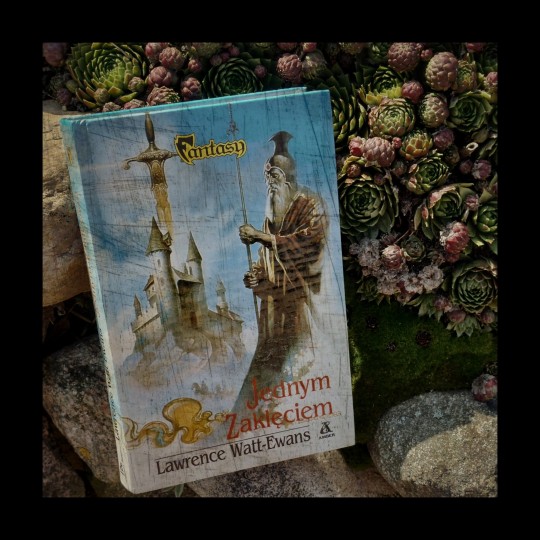
#book photography#book review#book tumblr#book#fantasy books#booklr#bookworm#books and reading#reading#book recommendations#book readers
2 notes
·
View notes
Text
The Story You Want To See: Princess Zelda’s Narrative Arc in The Legend of Zelda: Tears of the Kingdom
Spoilers for The Legend of Zelda: Tears of the Kingdom
A piece about reviewer interpretations of Zelda's role in The Legend of Zelda: Tears of the Kingdom, as analysed by someone who has played neither BOTW or TOTK. (1,219 words)
Unlike many gamers, what I (as a bystander with no interest in any of the Zelda games besides maybe Majora’s Mask) was most curious about with regard to Tears of the Kingdom was how it would treat Princess Zelda in the wake of Breath of the Wild.
You see, although I haven’t played Breath of the Wild, I do know that quite a few people praised Zelda’s portrayal in that game. They argued that while still a princess requiring Link’s rescuing, Zelda being made the focus of the main story (as doled out through flashbacks) and having been locked up in Hyrule Castle with Calamity Ganon by her own choice gave a subversive twist to that game. As summed up by Critical Distance’s Chris Lawrence in a Twitter thread on June 17th, 2021: “…In BOTW, Link may be the playable character, but Zelda is the protagonist—the flashbacks deal principally with her character development, not Link’s. […] The entirety of BOTW […] is about Zelda’s struggle to achieve autonomy.”
I wondered: if Breath of the Wild subverted the typical hero-and-princess story and put the evil to rest, then how would Tears of the Kingdom, which comes after this destruction of the status quo, treat this newly-liberated princess, a damsel no longer in distress?
Fans said that the obvious next step was for Nintendo to give Zelda a more active role in the sequel; as a playable character or deuteragonist, perhaps, but either way, she needed to be able to enjoy the freedom won at the end of the previous game. To return to Chris Lawrence’s thread: “If Zelda is once again damselled and needs to be rescued by Link, the sequel isn’t reflecting the growth of Zelda’s character over the previous game. In other words, the sequel is failing to justify itself as a narrative continuation of the first game.”
So I skimmed through the many glowing reviews of Tears of the Kingdom, hoping to find out what had become of Zelda. At that point, I noticed something odd: reviewers seemed to have strongly conflicting interpretations of Zelda’s part in the narrative.
Many reviews were positive on the story, and some specifically cited Zelda’s role in it as a highlight. Gamereactor’s David Caballero apparently declared that “it is literally the legend of Zelda this time around” (quoted in TOTK review by Gamereactor’s Alex Hopley), and Gamespot’s Steve Watts concurs: “But more than the Sages or even Link, this story truly belongs to Zelda”. The Gamer’s Jade King expanded on this in her review, stating that “[although] Zelda isn’t playable here, […] all the discoverable memories scattered across the open world focus on her arc”, and therefore “she is still given room to shine and comes across as inquisitively capable in recruiting new allies and setting the stage for Link to vanquish evil once and for all”. Checkpoint Gaming’s Luke Mitchell likewise observes that “while [Zelda] isn’t present for your adventuring, the main questline gives you the opportunity to unlock memories, uncovering more about Zelda and her connection to Hyrule”.
But a handful of other reviewers had a very different perspective. Two specifically noted that the premise of the game involves saving Zelda: Eurogamer’s Edwin Evans-Thirlwell wrote that “Zelda […] is still fundamentally a damsel in need of rescuing”, while IGN’s Tom Marks flippantly remarked that the game is “about stopping some evil jerk (welcome back, Ganondorf) and saving Princess Zelda as usual” while pronouncing the story to be “so dang cool”. The Verge’s Ash Parrish and Press Start’s James Berich were rather more critical, stating that “Zelda, though teased as playing a more active role, has been, once again, utterly sidelined — this time in a particularly egregious way”, and “Zelda’s characterisation definitely feels like a step back from her appearance in Breath of the Wild”, respectively.
So what actually happened in the game? After looking up some spoilers on Screenrant, I’m still not too sure myself. It seems that much of the main story sees Link searching for Zelda after getting separated at the start, during the course of which the player unlocks flashbacks showing what befell the princess. These flashbacks, in turn, explain that Zelda got transported into the past, and due to various reasons ended up sacrificing herself in order to ensure that Link is able to defeat the big bad in the present day. This sacrifice involves her turning into a mindless dragon, and she is able to turn back into a human only after being healed by Link (and friends) at the end.
In short:
Zelda is absent from a large portion of the game
Zelda does have a story arc in which she demonstrates agency… by sacrificing herself to ensure that Link can play his heroic role
Without Link’s help, Zelda would be dead (and/or stuck as a dragon with no sense of self)
Hmm. I don’t know, but this sounds very much like Breath of the Wild to me.
But why the praise? Why such a gap in interpretation among the critics? The answer, I think, lies in Ed Smith’s excellent article on Resident Evil 4 Remake, “And Then There Are Things We Don't Remake”. In it, he observes that “commercial entertainment has gotten extremely good at ensuring that your beliefs, whatever they are, are somehow reflected back to you”, taking Ashley from Resident Evil 4 Remake as an example:
“If you’re a feminist, Ashley talks more, does more, is kind of semi appreciably less sexualised than before. It won’t work on everyone, but enough people will be impressed by this ostensible progress as compared to 2005 that Resident Evil 4 Remake more or less passes the look test. If you like things how they were, and you’re worried about how videogames increasingly seem politicised or driven by a liberal agenda, Ashley still doesn’t do that much, and you still get to order her around, and there’s a few decent close-ups of her and Ada.”
Put another way, female characters in modern, big-budget games are frequently written to appeal to all demographics, even conflicting ones. Progressives will latch onto the hints of nuance to the writing of a female character or her gameplay design, while anti-progressives are appeased because they see that nothing has changed in the overall scheme of things.
Tears of the Kingdom is good because all those flashbacks are focused on Zelda, and in them we see a capable, clever young woman make a very hard choice for the sake of her people. Tears of the Kingdom is bad because ultimately Zelda isn’t present for most of the game and needs to be saved by Link.
Alternatively: Tears of the Kingdom’s handling of Zelda isn’t great, but hey, did we really expect any better of Nintendo? The trouble is that the games most kaleidoscopic in their representation are likely the biggest names – and as Smith notes, “there’s only so much indignation you can have about this, because it’s obviously how it’s going to be, and always going to be—they’re always going to make games this way, the big games, because it’s an industry”.
His illustration of this defeatist mindset is spot-on, but I wish it wasn’t. It doesn’t need to be the case. Let’s keep looking to that horizon, rather than only sticking to familiar plains.
#tears of the kingdom#loz totk#totk spoilers#totk thoughts#games criticism#my writing#legend of zelda
7 notes
·
View notes
Text
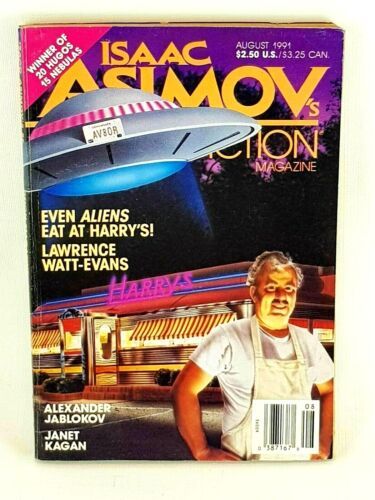

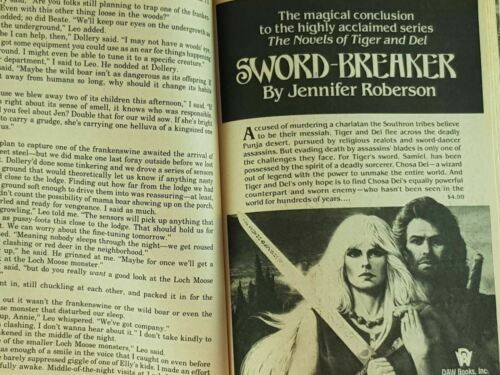
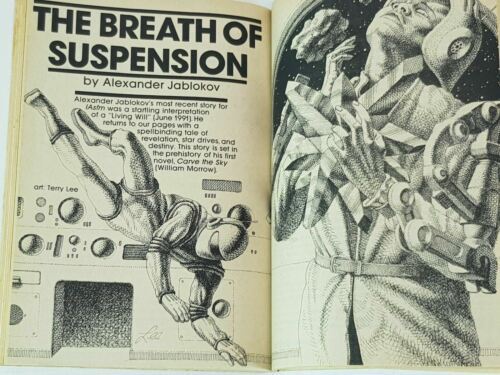
ISAAC ASIMOV Science Fiction August 1991 Lawrence Watt-Evans Magazine || autradingpost || eBay
#comics#graphic comics#science fiction books#isaac asimov#vintage graphic novels#vintage books#vintage science fiction books
11 notes
·
View notes
Photo
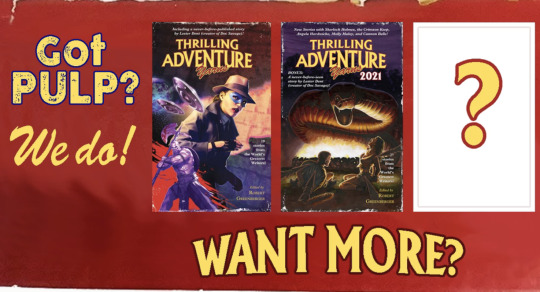
The Kickstarter I’m in has just one more stretch goal to make to include a story from Lawrence Watt-Evans.
Want in? We’re taking a walk on the Pulp Side of the Force! :)
https://www.kickstarter.com/projects/661452943/thrilling-adventure-yarns-2022
28 notes
·
View notes
Text
There’s this book called Out of This World by Lawrence Watt-Evans that’s about a sci-fi universe, a fantasy world, and our world encountering each other. It’s a miserable “deconstructive” slog that takes all the most generic cliches and then makes them as unpleasant as possible. For instance, it was written at a time when sci-fi was full of white people, so it’s heavily implied the reason the sci-fi setting is like that is because the white people committed genocide against everyone else. The main character is boring and stupid, because he’s based on boring and stupid MCs, and his wife manages to be compelling just by feeling like a person rather than a deconstruction.
At the end of the book, she gets raped and murdered to deconstruct the “revenge for murdered wife” trope. I consider this the perfect example of what’s wrong with these “deconstructive” stories. Instead of taking apart the old boring stories by killing her, letting her live could have led to a new story that wasn’t boring!
2 notes
·
View notes
Note
What level of physics do you take into account with worldbuilding? I am willing to basically agree that something like adding a new metal like Mithril is all things considered pretty easy, relatively speaking, just another already-existing concept with a high strength to weight ratio. But take size, for example. Should the Square Cube law for mass or caloric intake be at least given SOME thought? While I am usually a proponent of "dragons should be somewhere on a scale of Dragons Dogma to Ancalagon the Black with a primal bestial terrifying size and menace to them (RIP my boy The Dragon God from Demons Souls, your design was wasted), how would you work to justify their existence? Or is literally just "it's magic" a good enough response?
I personally prefer dragons a little smaller, about just exactly the right size to swallow a man whole rather than being building-sized (for "common" dragons, that is. Elder dragon types I absolutely think should be titanic) but very much agreed that dragons should have a unique menace to them rather than being commonplace mooks.
As for the question, it's a bit delicate and case by case. You'll inevitably need a bit of wiggle room with physics in order to just make fun and fantastic stuff happen, and oddly enough a little magic to justify certain things without making the threat insurmountable (for instance, your burrowing landshark should probably have an elemental affinity with earth rather than just the sheer brute strength that would allow it to tear through castles like cheesecloth, because this is a monster a man with a sword needs to pose a threat to)
Dragons in particular I'm most willing to justify with pure magic, because I see them as being unique to the main setting world/plane, sort of like its own native angels/demons and embodiments of its energies. Other monsters, you should be far more sparing with just waving away problems with "magic", particularly I recommend making that magic an alternative set of rules it follows.
Incidentally, Lawrence Watt-Evans' Obsidian series is all about dragons and their relationship to magic; very underrated in my opinion
2 notes
·
View notes
Text

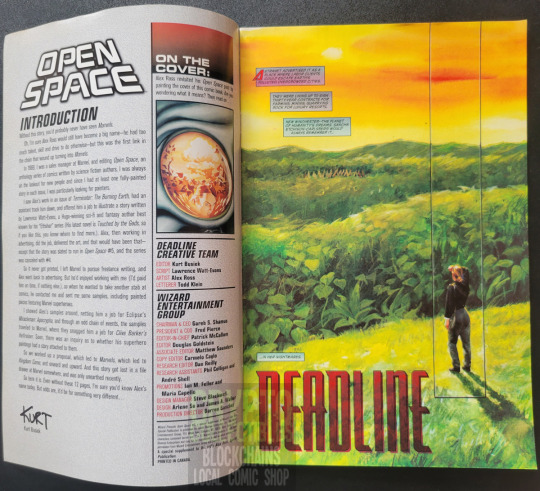
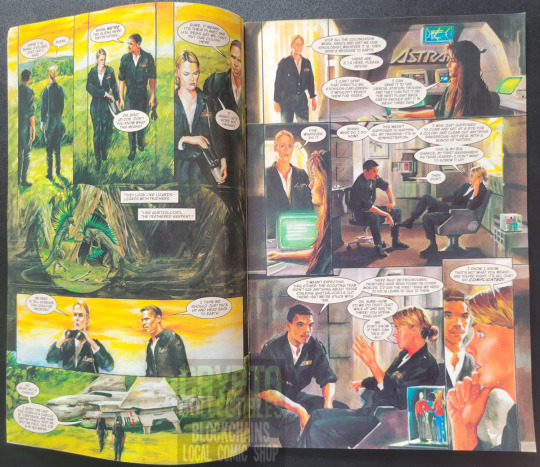
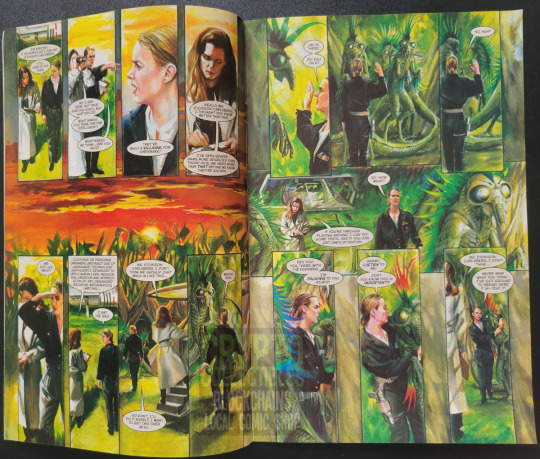
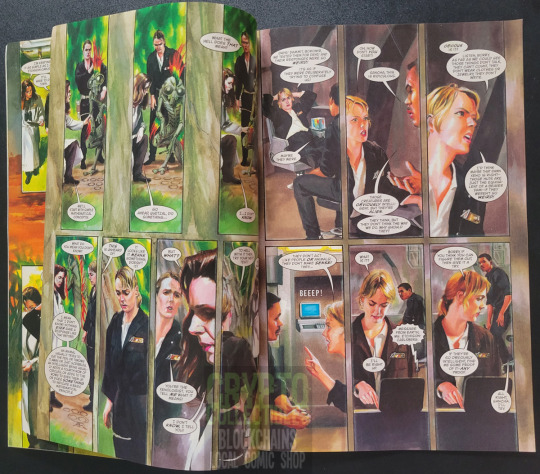
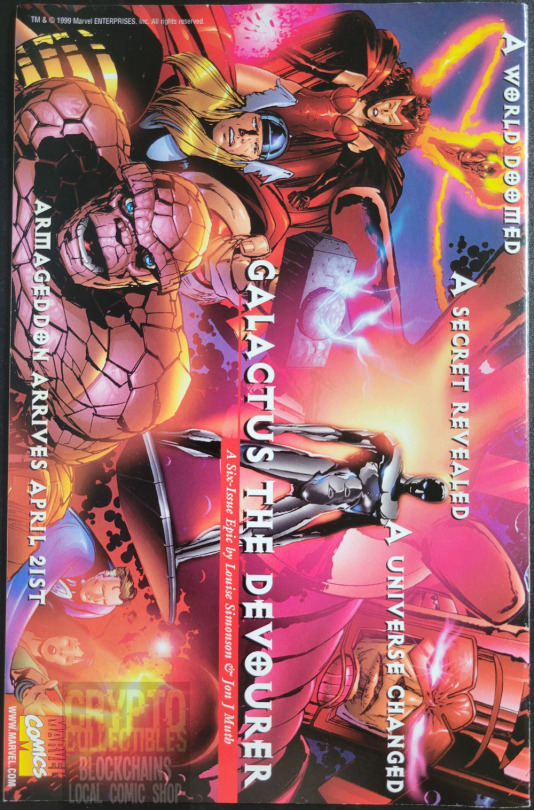
Open Space #0 (1999) by Marvel Comics and Wizard Magazine
Written by Lawrence Watt-Evans, drawn by Alex Ross.
0 notes
Text
Επιλογές Σεπτεμβρίου (17/9)
The Witcher: έχει πάρει την κάτω βόλτα | Η γυναίκα που λέγεται πως κοιμόταν 32 χρόνια | Σχέδια οχυρών και κάστρων (1671) | Μαντική τράπουλα Art Nouveau | Παράνομη κάθε συσκευή που παραβιάζει την IP; | S.C. Hickman | 60 χρόνια φανταστικής τέχνης Perry Rhodan | Τα πρώτα έργα του Jack Williamson | Η τάση μας να στρεφόμαστε στο φανταστικό έχει σχέση με την έλλειψη ελευθερίας που βιώνουμε; | Ταινίες βασισμένες σε ιστορίες του H.P. Lovecraft | The Lords of Dûs, του Lawrence Watt-Evans | Χαμένοι και κρυμμένοι θησαυροί | Η ταινία που παραλίγο να σκοτώσει τα κινούμενα σχέδια της Disney | Οι παράξενες, μεταφυσικές τοποθεσίες του Jean-Pierre Ugarte | Η κοσμολογική χαρτογραφία του Paul Laffoley | Man, Myth and Magic
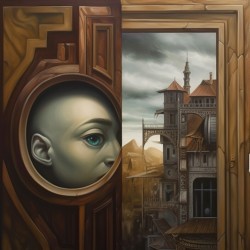
➤ https://www.fantastikosorizontas.gr/kostasvoulazeris/epiloges/ep.php?ID=09_2023#2
#links#the Witcher#σειρές#φαντασία#παράξενα#μυστήρια#οχυρά#κάστρα#τράπουλες#διαδίκτυο#τέχνη#φανταστική λογοτεχνία#επιστημονική φαντασία#ελευθερία#φιλοσοφία#ταινίες#Lovecraft#θησαυροί#μαγεία#χαρτογραφία
0 notes
Text
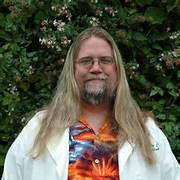
Alredered Remembers Massachusetts native and science-fiction writer Lawrence Watt-Evans, on his birthday.
0 notes
Text

Nightside City (Carlisle Hsing, volume 1) by Lawrence Watt-Evans
Why would someone buy doomed real estate?
5 notes
·
View notes
Text
Lawrence Watt-Evans is Having a Sale!
Lawrence Watt-Evans is Having a Sale!
Amazing Stories was granted permission by the author to reproduce his website sales pages below.
Please note: Links will take readers to the actual, official Lawrence Watt-Evans website and book sale. Purchases can not be made here on Amazing Stories.
Amazing Stories has published Mr. Watt-Evans and enjoys his work, and does not receive compensation for this promotion.
Books for Sale!
So you…
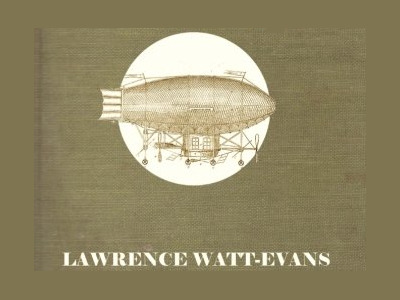
View On WordPress
0 notes
Text
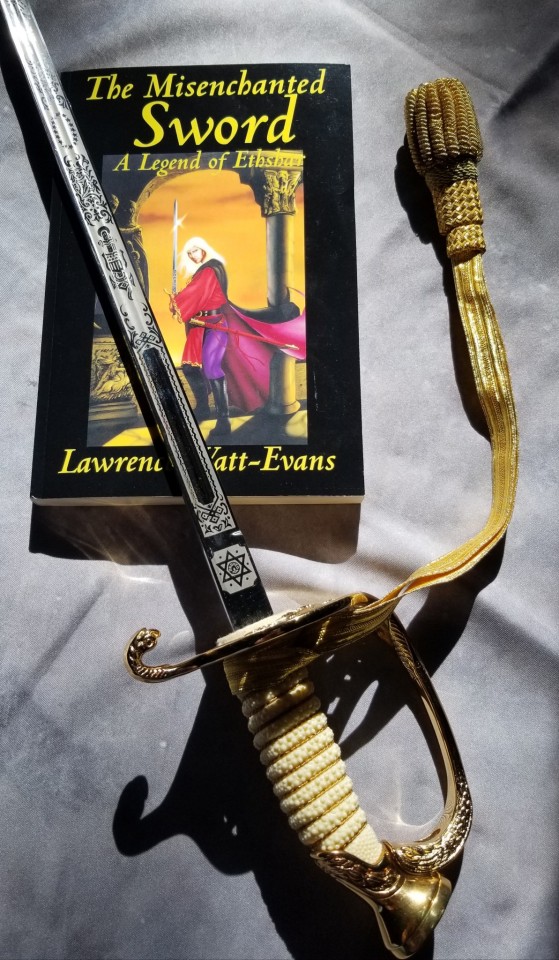
Currently reading.
#books#booklr#currently reading#Lawrence Watt Evans#The Misenchanted Sword#Yes I used my husband's Naval Officer sword as a prop 😊#It's not misenchanted lol
11 notes
·
View notes
Photo
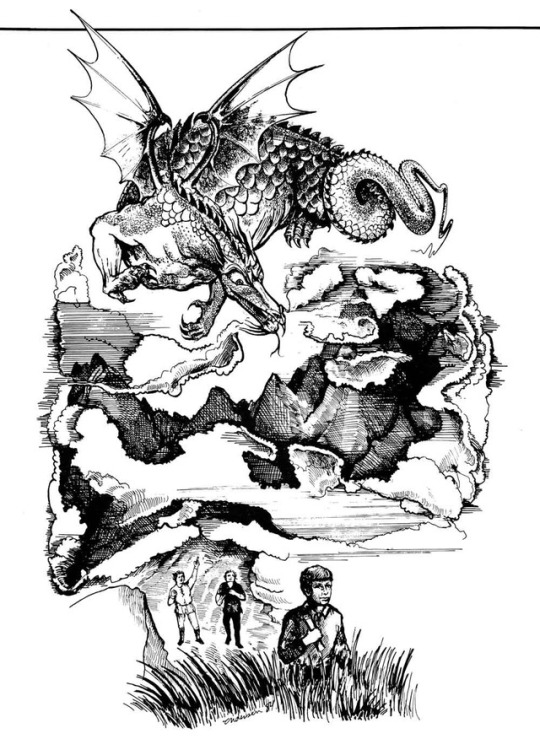
The Rune and the Dragon (Phyllis Andersen, for short story by Lawrence Watt-Evans in Dragon 91, November 1984)
#D&D#Dungeons & Dragons#Phyllis Andersen#dragon#Lawrence Watt Evans#Lawrence Watt-Evans#Dragon magazine#TSR#dnd#Dungeons and Dragons#The Rune and The Dragon
65 notes
·
View notes